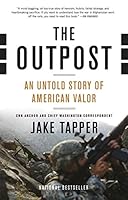Sublime
An inspiration engine for ideas
The figure hurrying back to his long-forgotten past had just accomplished something more extraordinary than any military feat during the war. At war’s end, he stood alone at the pinnacle of power, but he never became drunk with that influence, as had so many generals before him, and treated his commission as a public trust to be returned as soon as
... See moreRon Chernow • Washington
T. E. Lawrence and the Arab Revolt
A. R. B. Linderman • Rediscovering Irregular Warfare
Often dismayed by his men, Washington never tired in his efforts at moral improvement. Not just a citizen-soldier, he was a citizen-statesman who wanted his troops to uphold high standards of conduct. He wished them to be more than superb soldiers: they should set an example for patriots everywhere. In general orders to his troops, he articulated
... See moreRon Chernow • Washington

His Horse Soldiers: The Extraordinary Story of a Band of U.S. Soldiers Who Rode to Victory in Afghanistan (Stanton 2009),
David Tucker • United States Special Operations Forces
Yet when it comes to the great captains of irregular warfare, the same can hardly be said. While there are many accounts of daring commando raids, and more thoughtful works that explore the complex relationships between elite military advisors and friendly indigenous fighters, there is precious little study of the principles that might be distilled
... See moreJohn Arquilla • Insurgents, Raiders, and Bandits
later, Eric Haney published Inside Delta Force: The Story of America’s Elite Counterterrorism Unit (Haney 2002),
David Tucker • United States Special Operations Forces
I believe that freedom is the foundation of efficiency, both national and military. Thus it is a practical folly as well as a spiritual surrender to “go totalitarian” as a result of fighting for existence against the totalitarian states. Cut off the incentive to freely given service and you dry up the life source of a free community.
B.H. Liddell Hart • Why Don't We Learn from History?
